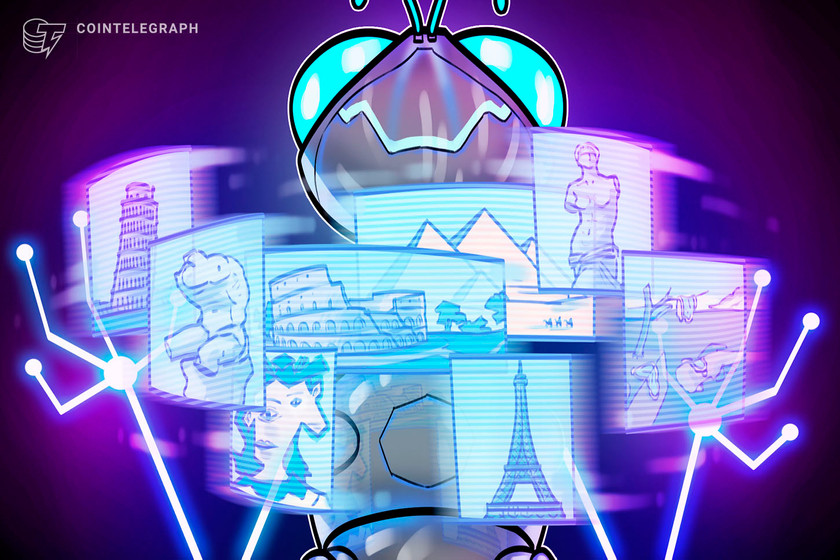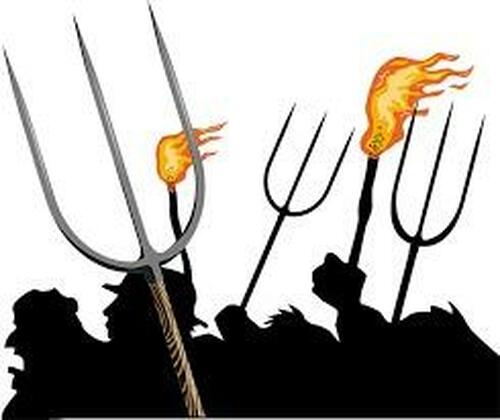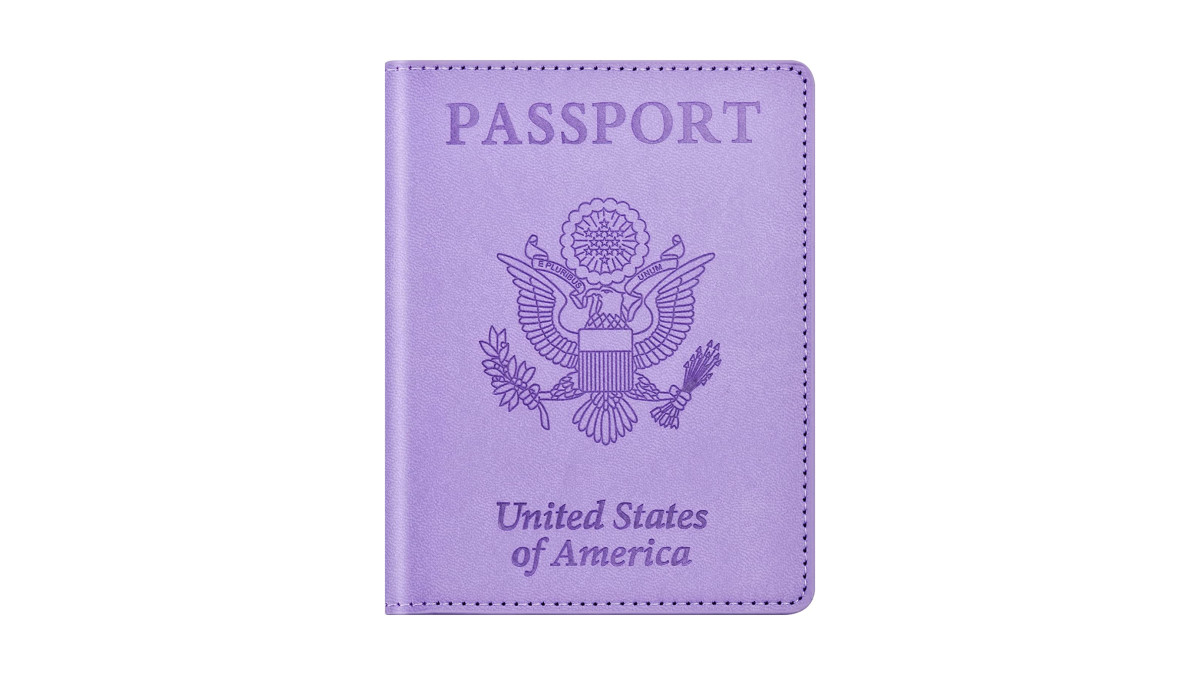Decentralized identity can bring the analog world into the digital one
A system of unified digital identity can replace lengthy approval and authentication chains with a simple DLT solution.
It is a given that connected devices need reliable, distributed ledger, technology-based digital identity solutions

A system of unified digital identity can replace lengthy approval and authentication chains with a simple DLT solution.
It is a given that connected devices need reliable, distributed ledger, technology-based digital identity solutions. That is an essential requirement for the Internet of Things (IoT). In the machine economy, devices must be able to recognize and communicate with one another; robust identity management solutions are key to effectively securing data and processes. But what about the multitude of analog “things” all around us? Surely they can also benefit from the advent of digital identity.
Imagine the following: You are just back from a grocery run or a walk in the park with your pooch when you suddenly realize the family heirloom ring that has been getting a little too loose around your finger is not there anymore. You retrace your steps, scan the ground and check the gutters and molehills, but you come back empty-handed. So many aspects of our daily lives have moved online, with precious things like passwords, pin codes and login certificates safely stowed away in appropriate security solutions. You can retrieve them at any time and manage them centrally. Why can’t you have the same for your family ring or other analog valuables?
Unlike your email password, your ring currently only lives in the analog world. You could tag it with a tracking device that connects to your phone, such as Apple’s AirTag, but this raises privacy and security issues, perhaps many more than it actually solves — not to mention, it is a bulky and odd accessory for a piece of jewelry. More importantly, we own a non-trivial number of analog valuables, and slapping trackers on each one at $40 a pop is not practical. The time has come to talk about the digital identity of analog things and finally invite our prized offline possessions into our increasingly virtual world.
Related: The data economy is a dystopian nightmare
What is decentralized digital identity?
Decentralized identity, or DID, refers to a digital identifier for something existing in the physical world. This digital identifier is placed on an immutable distributed ledger and includes a detailed description of attributes, capabilities and ownership. In practical terms, this means there is a reliable record that establishes you as the owner of your now-lost family ring. It describes the ring closely and makes it instantly identifiable. With your credentials, you can prove you are the owner; a miniature QR or barcode — or another kind of scannable identifier — attached or lasered onto the object is all it takes. Depending on the item, digital tags with additional capabilities are another viable option.
Compared to a simple tag or another tracking device, digital identity has a few other key advantages. It is stored safely because of its distributed ledger technology (DLT) backing, and it can establish ownership without leading directly to the owner. If you do not wish to publish your personally identifiable information on the ledger — a wise decision at any rate — you can create your own verified digital identity and associate your analog belongings with it. In the example of your lost ring, you have proof that you own the ring and can also use pseudonymization to make it harder for unwanted third parties to trace your valuables back to you.
Related: No more pushes and pushbacks: Digital ID solves the privacy dilemma
Conspicuous ownership of inconspicuous value
Analog things hold different kinds of value — monetary, emotional, practical — and can attract unwanted access and potential theft from bad actors at any moment, for any reason. Establishing a robust system of DLT-based digital identity for valuable physical objects has the added benefit of discouraging theft, as confirming a stolen object’s provenance on the ledger would automatically negate the option to resell it.
To further discourage misappropriation attempts, you can create different verifiable credentials associated with your digital identity. You also choose with whom you share this sensitive information — if anyone at all. Thanks to selective disclosure, you can establish your ownership of analog objects reliably, without sharing any more information than necessary. For instance, a public record on the ledger can list you as the owner of a white porcelain vase with blue floral motifs that is 20.5 inches tall and weighs 14.8 pounds.
In a different verifiable credential, you can specify the vase is a Qianlong — a collector’s item worth millions of dollars. This information does not need to be public, but you can share it with potential buyers if you decide to part ways with your prized collectible. DLT-powered digital identity affords you complete control over how much information you make public and how you compartmentalize so that it matches your individual ownership, identification and security needs.
Related: Decentralized identity is the way to fighting data and privacy theft
Identification and authentication on a global scale
Cross-platform communication remains a challenge in the digital realm, even more so on the analog side of things. Verifying the identity and ownership of an item across state borders and language barriers can be a prolonged, slow and expensive process that involves multiple steps and certified professionals’ services. In the case of especially valuable objects or real estate, verification involves notaries, translators, independent assessors and even consulates and embassies. A system of unified digital identity can replace lengthy approval and authentication chains with a simple DLT solution that instantly confirms an analog item’s ownership and characteristics anywhere in the world.
However, digital identity is not only useful for cross-border transactions. Today’s supply chains span the globe, and tracing materials and product components across continents is an arduous task that remains, against all odds, surprisingly analog. Shipment tracking is still often done by hand and on paper. The possibility for human error is high, and mistakes carry over and multiply across the shipment’s lifecycle. An immutable digital identity can speed up and automate many logistics processes. Special items that require particular handlings, such as temperature control or motion stabilization, can be paired with sensors that monitor their shipping conditions. In the end, items will arrive at their destination with an immutable record of their transportation quality and safety.
Such solutions are not limited to the logistics industry. The world is on the cusp of the post-COVID-19 era and the return to international travel it promises. Many of us will take to the sky in search of new, exciting destinations, but our bags will occasionally not travel with us. According to pre-pandemic statistics, airlines around the world misplace about 25 million bags per year. Chances are it has happened to you as well, and you know first-hand what a pain it is to track down and reclaim your lost luggage. Pairing your bag with a DID would make it instantly findable — no more looking for one black hard-shell suitcase among thousands. Airlines could also tag your bag at check-in with a DLT-enabled sensor that would give an audio or visual warning to luggage handlers if they are about to put your suitcase on the wrong plane.
A digital afterlife for analog things
Analog things get lost or misplaced — it is in their nature. Whether we are talking about production, logistics or personal items, such incidents are often costly and distressing. In our increasingly digitized everyday lives, our analog possessions are in danger of remaining disconnected permanently. Instead of leaving them behind, we can pair them with a digital identity that affords them the electronic afterlife they deserve without intruding on their nature.
DID does not require analog objects to become digitized, and it does not need expensive sensors or hi-tech tags to work correctly. Instead, it offers an affordable, reliable and versatile way to take offline items out of the digital blindspot.
The views, thoughts and opinions expressed here are the author’s alone and do not necessarily reflect or represent the views and opinions of Cointelegraph.
Government
Moderna turns the spotlight on long Covid with new initiatives
Moderna’s latest Covid effort addresses the often-overlooked chronic condition of long Covid — and encourages vaccination to reduce risks. A digital…

Moderna’s latest Covid effort addresses the often-overlooked chronic condition of long Covid — and encourages vaccination to reduce risks. A digital campaign debuted Friday along with a co-sponsored event in Detroit offering free CT scans, which will also be used in ongoing long Covid research.
In a new video, a young woman describes her three-year battle with long Covid, which includes losing her job, coping with multiple debilitating symptoms and dealing with the negative effects on her family. She ends by saying, “The only way to prevent long Covid is to not get Covid” along with an on-screen message about where to find Covid-19 vaccines through the vaccines.gov website.
“Last season we saw people would get a flu shot, but they didn’t always get a Covid shot,” said Moderna’s Chief Brand Officer Kate Cronin. “People should get their flu shot, but they should also get their Covid shot. There’s no risk of long flu, but there is the risk of long-term effects of Covid.”
It’s Moderna’s “first effort to really sound the alarm,” she said, and the debut coincides with the second annual Long Covid Awareness Day.
An estimated 17.6 million Americans are living with long Covid, according to the latest CDC data. About four million of them are out of work because of the condition, resulting in an estimated $170 billion in lost wages.
While HHS anted up $45 million in grants last year to expand long Covid support initiatives along with public health campaigns, the condition is still often ignored and underfunded.
“It’s not just about the initial infection of Covid, but also if you get it multiple times, your risks goes up significantly,” Cronin said. “It’s important that people understand that.”
grants covid-19 cdc hhsGovernment
Consequences Minus Truth
Consequences Minus Truth
Authored by James Howard Kunstler via Kunstler.com,
“People crave trust in others, because God is found there.”
-…

Authored by James Howard Kunstler via Kunstler.com,
“People crave trust in others, because God is found there.”
- Dom de Bailleul
The rewards of civilization have come to seem rather trashy in these bleak days of late empire; so, why even bother pretending to be civilized? This appears to be the ethos driving our politics and culture now. But driving us where? Why, to a spectacular sort of crack-up, and at warp speed, compared to the more leisurely breakdown of past societies that arrived at a similar inflection point where Murphy’s Law replaced the rule of law.
The US Military Academy at West point decided to “upgrade” its mission statement this week by deleting the phrase Duty, Honor, Country that summarized its essential moral orientation. They replaced it with an oblique reference to “Army Values,” without spelling out what these values are, exactly, which could range from “embrace the suck” to “charlie foxtrot” to “FUBAR” — all neatly applicable to our country’s current state of perplexity and dread.
Are you feeling more confident that the US military can competently defend our country? Probably more like the opposite, because the manipulation of language is being used deliberately to turn our country inside-out and upside-down. At this point we probably could not successfully pacify a Caribbean island if we had to, and you’ve got to wonder what might happen if we have to contend with countless hostile subversive cadres who have slipped across the border with the estimated nine-million others ushered in by the government’s welcome wagon.
Momentous events await. This Monday, the Supreme Court will entertain oral arguments on the case Missouri, et al. v. Joseph R. Biden, Jr., et al. The integrity of the First Amendment hinges on the decision. Do we have freedom of speech as set forth in the Constitution? Or is it conditional on how government officials feel about some set of circumstances? At issue specifically is the government’s conduct in coercing social media companies to censor opinion in order to suppress so-called “vaccine hesitancy” and to manipulate public debate in the 2020 election. Government lawyers have argued that they were merely “communicating” with Twitter, Facebook, Google, and others about “public health disinformation and election conspiracies.”
You can reasonably suppose that this was our government’s effort to disable the truth, especially as it conflicted with its own policy and activities — from supporting BLM riots to enabling election fraud to mandating dubious vaccines. Former employees of the FBI and the CIA were directly implanted in social media companies to oversee the carrying-out of censorship orders from their old headquarters. The former general counsel (top lawyer) for the FBI, James Baker, slid unnoticed into the general counsel seat at Twitter until Elon Musk bought the company late in 2022 and flushed him out. The so-called Twitter Files uncovered by indy reporters Matt Taibbi, Michael Shellenberger, and others, produced reams of emails from FBI officials nagging Twitter execs to de-platform people and bury their dissent. You can be sure these were threats, not mere suggestions.
One of the plaintiffs joined to Missouri v. Biden is Dr. Martin Kulldorff, a biostatistician and professor at the Harvard Medical School, who opposed Covid-19 lockdowns and vaccine mandates. He was one of the authors of the open letter called The Great Barrington Declaration (October, 2020) that articulated informed medical dissent for a bamboozled public. He was fired from his job at Harvard just this past week for continuing his refusal to take the vaccine. Harvard remains among a handful of institutions that still require it, despite massive evidence that it is ineffective and hazardous. Like West Point, maybe Harvard should ditch its motto, Veritas, Latin for “truth.”
A society hostile to truth can’t possibly remain civilized, because it will also be hostile to reality. That appears to be the disposition of the people running things in the USA these days. The problem, of course, is that this is not a reality-optional world, despite the wishes of many Americans (and other peoples of Western Civ) who wish it would be.
Next up for us will be “Joe Biden’s” attempt to complete the bankruptcy of our country with $7.3-trillion proposed budget, 20 percent over the previous years spending, based on a $5-billion tax increase. Good luck making that work. New York City alone is faced with paying $387 a day for food and shelter for each of an estimated 64,800 illegal immigrants, which amounts to $9.15-billion a year. The money doesn’t exist, of course. New York can thank “Joe Biden’s” executive agencies for sticking them with this unbearable burden. It will be the end of New York City. There will be no money left for public services or cultural institutions. That’s the reality and that’s the truth.
A financial crack-up is probably the only thing short of all-out war that will get the public’s attention at this point. I wouldn’t be at all surprised if it happened next week. Historians of the future, stir-frying crickets and fiddleheads over their campfires will marvel at America’s terminal act of gluttony: managing to eat itself alive.
* * *
Support his blog by visiting Jim’s Patreon Page or Substack
Uncategorized
One city held a mass passport-getting event
A New Orleans congressman organized a way for people to apply for their passports en masse.

While the number of Americans who do not have a passport has dropped steadily from more than 80% in 1990 to just over 50% now, a lack of knowledge around passport requirements still keeps a significant portion of the population away from international travel.
Over the four years that passed since the start of covid-19, passport offices have also been dealing with significant backlog due to the high numbers of people who were looking to get a passport post-pandemic.
Related: Here is why it is (still) taking forever to get a passport
To deal with these concurrent issues, the U.S. State Department recently held a mass passport-getting event in the city of New Orleans. Called the "Passport Acceptance Event," the gathering was held at a local auditorium and invited residents of Louisiana’s 2nd Congressional District to complete a passport application on-site with the help of staff and government workers.
'Come apply for your passport, no appointment is required'
"Hey #LA02," Rep. Troy A. Carter Sr. (D-LA), whose office co-hosted the event alongside the city of New Orleans, wrote to his followers on Instagram (META) . "My office is providing passport services at our #PassportAcceptance event. Come apply for your passport, no appointment is required."
More Travel:
- A new travel term is taking over the internet (and reaching airlines and hotels)
- The 10 best airline stocks to buy now
- Airlines see a new kind of traveler at the front of the plane
The event was held on March 14 from 10 a.m. to 1 p.m. While it was designed for those who are already eligible for U.S. citizenship rather than as a way to help non-citizens with immigration questions, it helped those completing the application for the first time fill out forms and make sure they have the photographs and identity documents they need. The passport offices in New Orleans where one would normally have to bring already-completed forms have also been dealing with lines and would require one to book spots weeks in advance.
These are the countries with the highest-ranking passports in 2024
According to Carter Sr.'s communications team, those who submitted their passport application at the event also received expedited processing of two to three weeks (according to the State Department's website, times for regular processing are currently six to eight weeks).
While Carter Sr.'s office has not released the numbers of people who applied for a passport on March 14, photos from the event show that many took advantage of the opportunity to apply for a passport in a group setting and get expedited processing.
Every couple of months, a new ranking agency puts together a list of the most and least powerful passports in the world based on factors such as visa-free travel and opportunities for cross-border business.
In January, global citizenship and financial advisory firm Arton Capital identified United Arab Emirates as having the most powerful passport in 2024. While the United States topped the list of one such ranking in 2014, worsening relations with a number of countries as well as stricter immigration rules even as other countries have taken strides to create opportunities for investors and digital nomads caused the American passport to slip in recent years.
A UAE passport grants holders visa-free or visa-on-arrival access to 180 of the world’s 198 countries (this calculation includes disputed territories such as Kosovo and Western Sahara) while Americans currently have the same access to 151 countries.
stocks pandemic covid-19 grants-

 Uncategorized3 weeks ago
Uncategorized3 weeks agoAll Of The Elements Are In Place For An Economic Crisis Of Staggering Proportions
-

 International1 week ago
International1 week agoEyePoint poaches medical chief from Apellis; Sandoz CFO, longtime BioNTech exec to retire
-

 Uncategorized4 weeks ago
Uncategorized4 weeks agoCalifornia Counties Could Be Forced To Pay $300 Million To Cover COVID-Era Program
-

 Uncategorized3 weeks ago
Uncategorized3 weeks agoApparel Retailer Express Moving Toward Bankruptcy
-

 Uncategorized4 weeks ago
Uncategorized4 weeks agoIndustrial Production Decreased 0.1% in January
-

 International1 week ago
International1 week agoWalmart launches clever answer to Target’s new membership program
-

 Spread & Containment2 days ago
Spread & Containment2 days agoIFM’s Hat Trick and Reflections On Option-To-Buy M&A
-

 Uncategorized4 weeks ago
Uncategorized4 weeks agoRFK Jr: The Wuhan Cover-Up & The Rise Of The Biowarfare-Industrial Complex





















